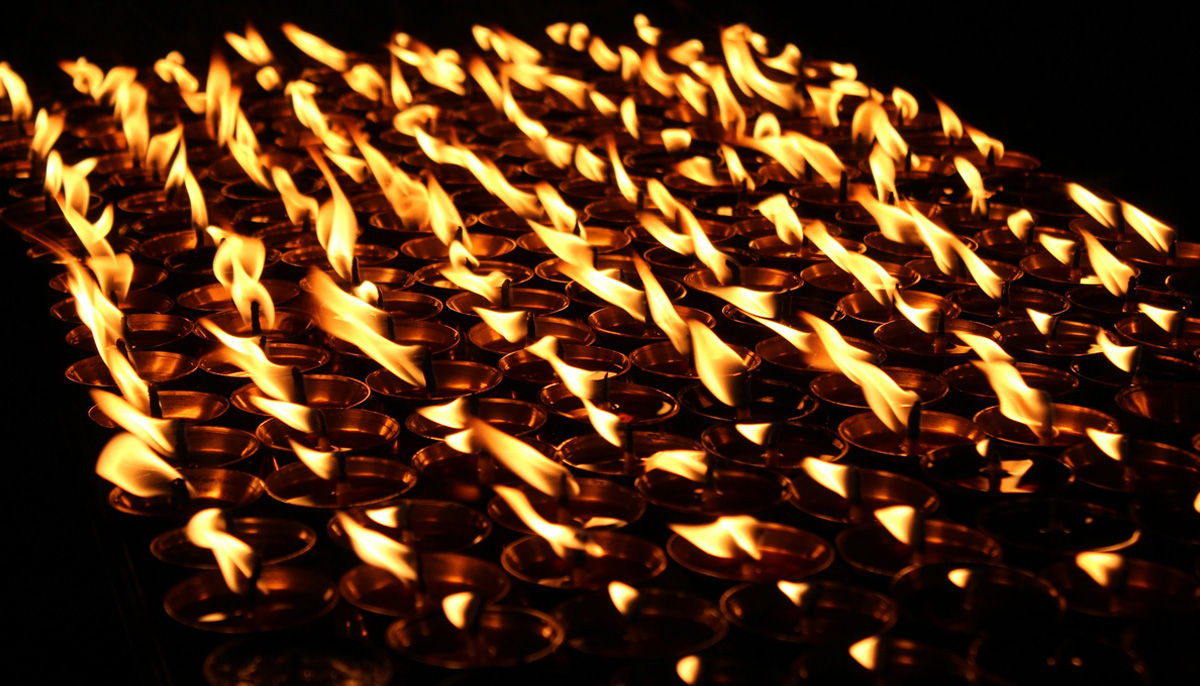Leaving Bhutan was a race against the virus. Every morning, I found myself walking around the abandoned hotel in which we were the only guests, seeking out the best location for good reception, attempting to learn what that day’s news had to say.
Once the chaos over the first diagnosed case of COVID-19 in Bhutan died down, the country seemed to settle. The King’s sane and wise advice calmed the people and eased the atmosphere. And when, a few days later, the American man who had the virus was airlifted on a special plane back to the USA, I thought we could finally disconnect and relax. We could continue our pilgrimage. It was a great thought, but I was wrong.
Instead, from the vantage point of traveling in Bhutan, it felt as if that one case of COVID-19 was the spark that ignited the explosion of the virus across the world. Of course, this wasn’t true, but as I read the news and my family’s texts and saw how rapidly the virus was expanding and extending its reach, and how, simultaneously, the world was contracting, shrinking, I realized that there would be no disconnecting from the world karma that was transforming the face of our planet.
Remember that you came here to learn what it really means to be fully human.
Soon, Nepal closed its borders to foreigners and India announced that no international flights would be allowed to enter or leave the country. Sensing how hard it would be get home, I scrambled to book us on departing flights. With no sense of certaintly, we left our hotel to hike into the mountains of Phobjikha, one of the highest ranges in Bhutan and a powerfully sacred space for practice. For some hours, we settled, resting at ease beneath the warmth of the Himalayan sun, coming to be, silent, merged into the song of the wind in the towering pines. The natural world slowly spinning beneath the shadows of high, white clouds. Peace. Stillness.
In the United States, the virus was rapidly expanding. My parents entered indefinite lockdown in Idaho. My calls to Expedia and United Airlines were met with no response, only automated messages about the volume of calls and the extremely long wait times. Concerned and frustrated, we left all the threads hanging. We arranged our cushions on the floor of an ancient temple, sacred to the mad yogi, Drukpa Kunley — centuries old, dark with shadows and flickering with the flames of butter lamps. Silence. The distant cry of a raven. The cool touch of temple air on my skin. A sense of something very old, very still, very vast. The flow of blood in our veins slowed. Breath came and went. The body knew how to be: half timelessly unraveled, half firmly rooted in the present.
Finally, we arrived at our furthest destination, Bumthang, after hours of driving the wild, twisting roads of Bhutan’s mountains. We were beneath the thundering mountain where the Nyingma master, Longchenpa, lived in exile from Tibet and where he composed some of his greatest treatises on the Dzogchen path. We stayed the night, alone, in a small cabin on the side of a wooded slope, playing cards, drinking powdered milk, and huddling beside the wall heater.
The next morning, I read an announcement that the US State Department had issued a recall for all citizens abroad, urging us to come home immediately or be prepared to stay abroad indefinitely. With Nepal and India shut down, the only way for us to return to the United States was via Thailand and the only operating airline out of Bhutan was about to discontinue all flights. There was no choice but to leave.
I was crestfallen. Longchenpa’s place, Tharpaling, a monastic complex of temples perched high on the slope of a mountain across the valley from us, had been our pilgrimage destination. That morning, we sat in the car and faced Tharpaling, windows open to the fresh, cold air. For a time, the reverberations of that master’s profound liberated energy seemed to echo across the centuries. We felt at peace. When, at last, we began the long drive back to Thimphu, we laughed, snacking on cream crackers and peanuts, and taking turns watching the unfolding landscape.
Back in Thimphu, we sat on plastic chairs in the Druk Air office and waited for our number to be called. I’d finally found a flight to the United States. We had only one day left and we knew that we had to visit the most sacred site in Bhutan: Taktsang, the Tiger’s Nest, where Guru Rinpoche manifested as the wrathful form of Dorje Trollo riding on the back of his consort, Yeshe Tsogyal, in the form of a pregnant tigress.
Climbing the trail to Taktsang, I marveled at how abandoned it was. With all tourists gone from Bhutan and no tours operating, the routinely packed trail was empty. There was only stillness, the smells of jasmine and pine, the slow plodding of our feet, and the somersaulting white water of a waterfall. When we arrived at the temple, a few monks were visible here and there – a sharp contrast to the usually crowded rooms. We entered the cave where the manifestation of the wrathfully compassionate form of Dorje Trollo manifested centuries ago. Only one old monk sat, nodding over his pecha in a small window seat. We prostrated and sat on our cushions.
An old stillness flowed over and into us. The rock walls of the cave emitted a slow flow of cold air. Above us, a huge figure of Dorje Trollo, wreathed in flames and rolling his bloodshot eyes, gestured wildly with the pointed kila he brandished in his raised right hand. The orange striped coat of the tiger, Yeshe Tsogyal, seemed to merge with the flames of burning compassion surrounding them both. I let myself relax into the embrace of stone that was grounded and stable, vivid, burning, and vitally present. Moment after slow moment, I noticed the gentle patter of rain on rock, the rushing silver sound of the waterfall.
This is it, I thought. This is what we will be doing. We must hold still in the midst of our burning thoughts, our anxieties, our fears, and our emotions. We must remember to settle into our bodies and allow them to do the knowing, the resting, the connecting to the earth beneath us. We have a chance now, while the world has stilled, to feel the wind and the sun, to walk outside in the rain, to notice the small, yellow faces of dandelions emerging from the mud. We have a chance to remember what matters in this fleeting, fragile life – our connections, our loves, our families, friends, communities and our host, this endlessly beautiful and constantly changing Earth.
Seventy-two hours later, after nearly thirty hours in the air, we finally arrived back home to New Hampshire. Our house felt warm, welcoming. Collapsing into bed, I gave thanks for our safe return. As our time in Bhutan receded like a vivid dream back into memory, I thought about the days to come and the opportunities that now stretched out in front of us. Opportunities for finding stillness and space in the midst of chaos.
When we sit, we can experience the stability and sageness of the Earth; we can open to the vastness of the sky; we can recognize that we are the lightning rod connecting heaven and earth. We have an opportunity to strengthen and vitalize that connection. The world karma unfolding now is something we cannot predict or control – it is a force with an energy and lifespan of its own that will exhaust itself in its own time. However, we do have a choice. We have choice in the kind of relationship we will forge with this karma. Will it be a relationship fraught with fear and anxiety — unsettled, ungrounded, and disconnected to any source of sanity and compassion? Or will it be a relationship that relaxes in the flowing energy of change, of emotional upheaval, of not-knowing?
Can we hold in mind and body the truth that we are meant to be here, now, to experience and feel all the energies surging around and through us? Can we recognize the truth that these energies are a radiant expression of love and of the beauty and tragedy of being human? When you sit, feel the earth. When you sit, feel the sky. Remember that you came here, that you took up this path to learn what it really means to be fully human, awake and aware, in suffering and in joy, holding still in the middle of fire.

